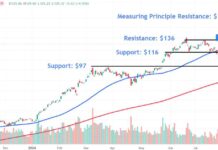Big Tech Stocks Facing Scrutiny from Large Investors: Pre-Global Sell-Off
As the global markets experienced a significant sell-off in early August, prominent investors were seen reducing their stakes in various big tech companies. This shift in investment strategies was evident in the 13F filings for the second quarter, revealing a trend of large investors moving away from certain tech giants and towards others in anticipation of market volatility.
Alphabet and Meta, two tech behemoths, were among the companies that saw a decrease in hedge fund investments during the second quarter. Investors such as Bill Ackman and David Tepper were notable names that trimmed their stakes in these companies, signaling a shift in sentiment towards big tech stocks.
The decision to reduce investments in Alphabet and Meta came at a time when these companies were under pressure to demonstrate the effectiveness of their massive spending on artificial intelligence (AI) initiatives. Investors were closely monitoring the returns on these investments, leading some to pull back their stakes in anticipation of potential underperformance.
On the other hand, there were a few hedge funds that took a different approach by increasing their holdings in AI chipmaker Nvidia. These funds saw the potential for Nvidia to benefit from the growing demand for AI infrastructure, positioning the chipmaker as a lucrative investment opportunity amidst the evolving tech landscape.
The Securities and Exchange Commission (SEC) mandates that firms with assets under management of $100 million or more file a 13F form quarterly to disclose their equity holdings. This regulatory requirement provides valuable insight into the investment decisions of prominent investors and helps shape market trends.
Alphabet (GOOGL) and Meta (META) were not the only tech companies that experienced a shift in investor sentiment during the second quarter. Intel (INTC) also faced a reduction in hedge fund investments as the chipmaker reported a wider-than-expected loss and announced a cost-saving plan that included layoffs.
Warren Buffett’s Berkshire Hathaway (BRK.A) (BRK.B) notably reduced its stakes in Apple (AAPL) during the second quarter, although the tech giant still remains the conglomerate’s largest holding. This move by Berkshire Hathaway reflected a strategic shift in investment focus, with other hedge funds like Renaissance taking the opportunity to acquire shares of Apple.
The increased interest in Nvidia (NVDA) by hedge funds such as Bridgewater, Renaissance, and Tepper’s Apaloosa highlighted the growing importance of AI infrastructure in the tech industry. These funds recognized the potential for Nvidia to capitalize on the rising demand for AI technologies, positioning the chipmaker as a key player in the evolving tech landscape.
Overall, the pre-global sell-off period in early August served as a pivotal moment for large investors to reassess their tech stock holdings and reallocate their investments based on market trends and company performance. The shifting dynamics in the tech sector underscored the need for investors to stay agile and responsive to changing market conditions in order to optimize their investment portfolios.
Impact of Global Sell-Off on Tech Stocks
The global sell-off that occurred in early August sent shockwaves through the financial markets, triggering a wave of uncertainty and volatility. Tech stocks, which had been riding high on the wave of digital transformation and innovation, were not immune to the sell-off as investors scrambled to reevaluate their risk exposure.
The sell-off highlighted the inherent risks in tech stocks, particularly for companies that were heavily reliant on AI investments and faced scrutiny over the returns on these investments. Alphabet and Meta, in particular, came under the spotlight as investors questioned the effectiveness of their AI strategies and the impact on their bottom line.
As large investors pulled back their stakes in Alphabet and Meta, the tech giants were forced to navigate a challenging landscape where investor confidence was wavering. The pressure to demonstrate the value of their AI investments became more pronounced, leading to increased scrutiny and expectations from shareholders.
On the flip side, companies like Nvidia emerged as attractive investment opportunities for hedge funds looking to capitalize on the growing demand for AI infrastructure. Nvidia’s position as a key player in the AI chip market made it a strategic choice for investors seeking exposure to the lucrative AI sector amidst the market turmoil.
The sell-off served as a wake-up call for tech companies to reassess their strategies and demonstrate the tangible benefits of their investments in order to regain investor confidence. The shifting investor sentiment towards tech stocks underscored the importance of transparency, accountability, and performance in a volatile market environment.
Future Outlook for Big Tech Stocks
Looking ahead, the future outlook for big tech stocks remains uncertain as companies navigate the evolving tech landscape and changing market dynamics. The aftermath of the global sell-off has left investors cautious and discerning, prompting companies to rethink their strategies and adapt to the new normal.
Alphabet and Meta will need to demonstrate the value of their AI investments and showcase tangible results to win back investor confidence. The pressure to deliver on their AI initiatives will only increase as investors demand transparency and accountability in light of the market volatility.
On the other hand, Nvidia’s position as a leading AI chipmaker presents a promising opportunity for investors seeking exposure to the growing AI market. The increased interest from hedge funds in Nvidia underscores the company’s potential to capitalize on the rising demand for AI technologies and infrastructure, positioning it for future growth and profitability.
As tech companies navigate the post-sell-off landscape, they will need to focus on innovation, performance, and strategic partnerships to stay competitive and resilient in the face of market uncertainties. The ability to adapt to changing market conditions and investor expectations will be critical for tech companies to thrive in a rapidly evolving digital economy.
In conclusion, the pre-global sell-off period marked a pivotal moment for big tech stocks as large investors reassessed their holdings and reallocated their investments based on market trends and company performance. The shifting dynamics in the tech sector highlighted the need for companies to demonstrate the value of their investments and adapt to changing market conditions in order to secure investor confidence and drive long-term growth.

















